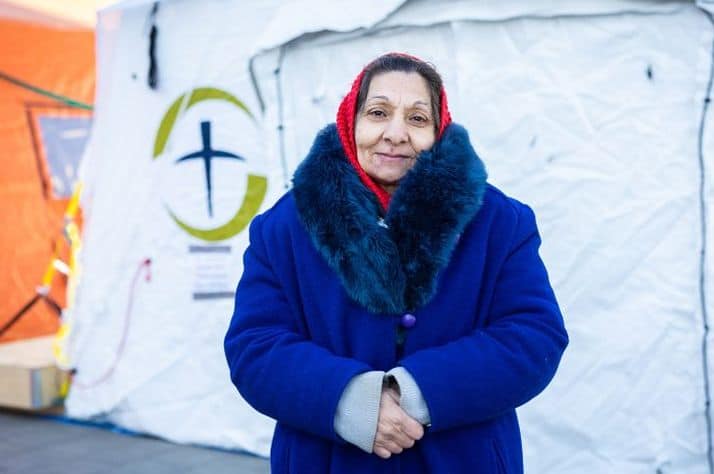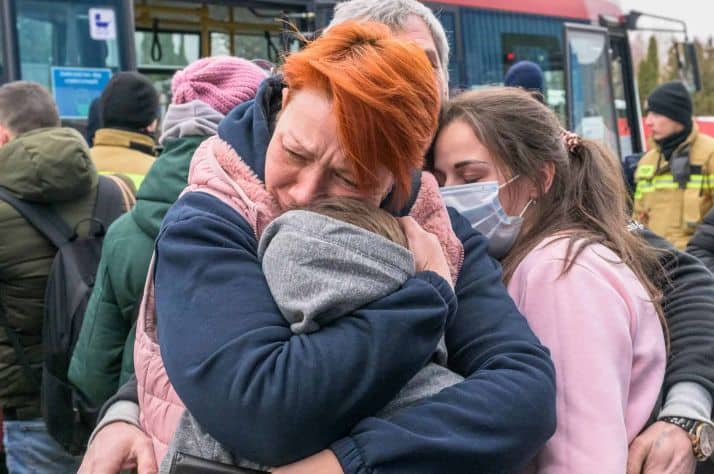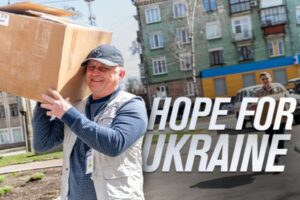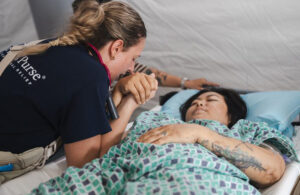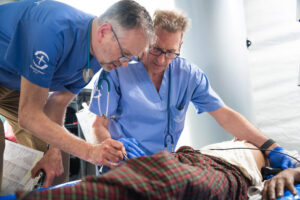As refugees flee Ukraine, Samaritan’s Purse is meeting medical needs at critical points on their path.
Close to 4 million people have fled Ukraine since the conflict began, with another 6-7 million people internally displaced. Many families are transient within Ukraine—moving from one town to the next searching for safety.
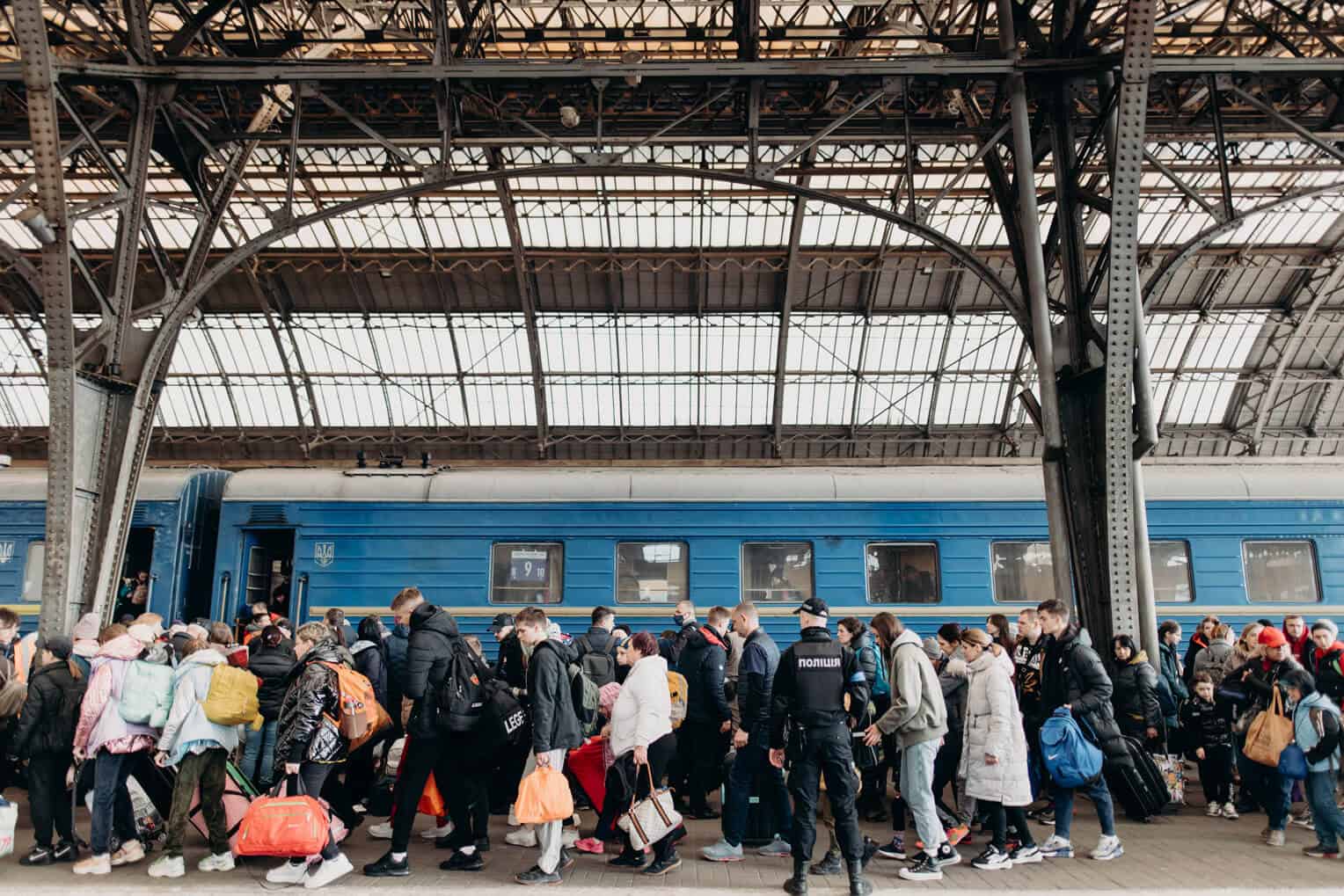
They often spend just a few nights in a new location before it too becomes a target of the war and forces them to travel onward. Others have settled in cities further west or chosen to cross the border with only the possessions they can stuff in a rolling suitcase or a backpack.
Their eyes are haunted by the violence they’ve witnessed, but they keep pushing forward. It’s their only option for safety.
Along their route, Samaritan’s Purse is responding at critical points of need—providing urgent medical care, cleaning wounds, bandaging injuries, and praying for them before they continue westward.
If you are interested in joining our DART roster to be a part of these types of disaster responses, click here to apply.
We are running medical clinics at both the downtown train station and the local bus station in Lviv. Tens of thousands of people funnel through these points each day. They are escaping war. They’ve survived nearby missile strikes, lost loved ones, and had their families ripped apart.
They are focused. Their minds are singularly set on getting to safety. Time is precious. They won’t make a detour to take care of themselves medically. The only way to meet their needs is to be strategically positioned along their path.
“The train station is a raw, unfiltered, frontline experience,” explained Peter, a nurse at the train station clinic. “People are confused, distraught, crying, and injured, and we get to be that first point of contact when they land in what is considered a safer city in Ukraine and the one last final push to get to a NATO country.
Along their route, Samaritan’s Purse is responding at critical points of need before they continue westward.
“We’ve seen everything from war injuries to a cardiac arrest to just the sniffles.”
As refugees pour down the steps of the train station or clamber to buy their bus ticket west, they pass by a white Samaritan’s Purse tent, bearing the cross logo. Dozens of patients come inside each day. Many are struggling with high blood pressure, headaches, nausea, dehydration and other health problems exacerbated by stress, trauma, and days on the run. Their anxiety surfaces in their vital signs.
“They are really, really tired. Physically, they are just doing the motions,” explained Gabi, a Samaritan’s Purse nurse at the bus station. “We are in a privileged position where we can tide them over until the next part of their leg. We don’t do the whole journey, but we can honor and love them in this section of what they are going through.”
They won’t make a detour to take care of themselves medically. The only way to meet their needs is to be strategically positioned along their path.
Tetyana
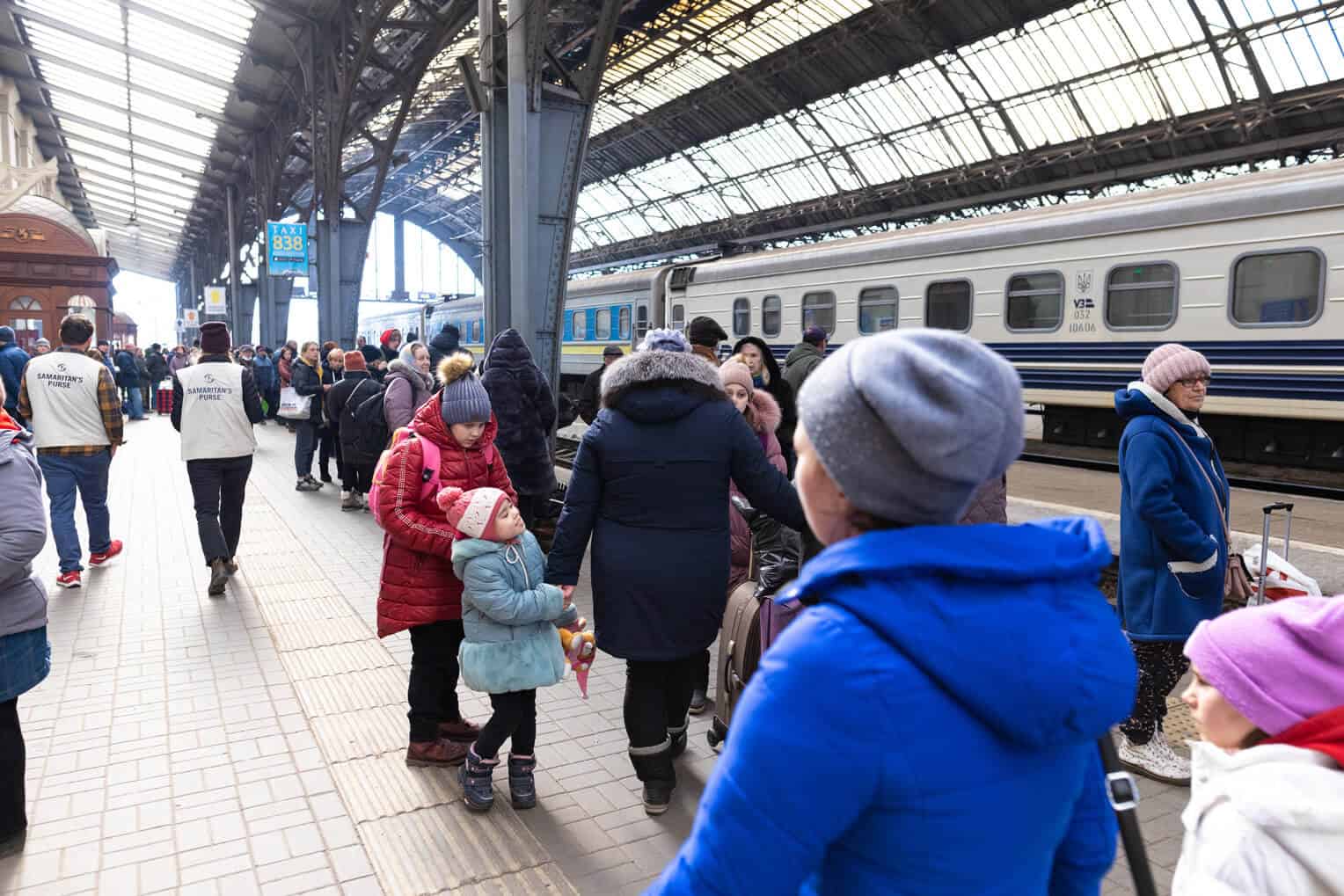
“It was terrifying to hear that sound.”
A missile struck Tetyana’s apartment complex in Kharkiv. She survived, but she knew the next time she might not be so lucky. Civilian casualties were becoming more and more common in her neighborhood.
“It was terrifying to hear that sound,” Tetyana remembered. Windows shattered and part of her apartment building crumbled.
After having her blood pressure checked, she picked up her backpack to continue on. She resolved, “We are holding on, just holding on.”
Valentina
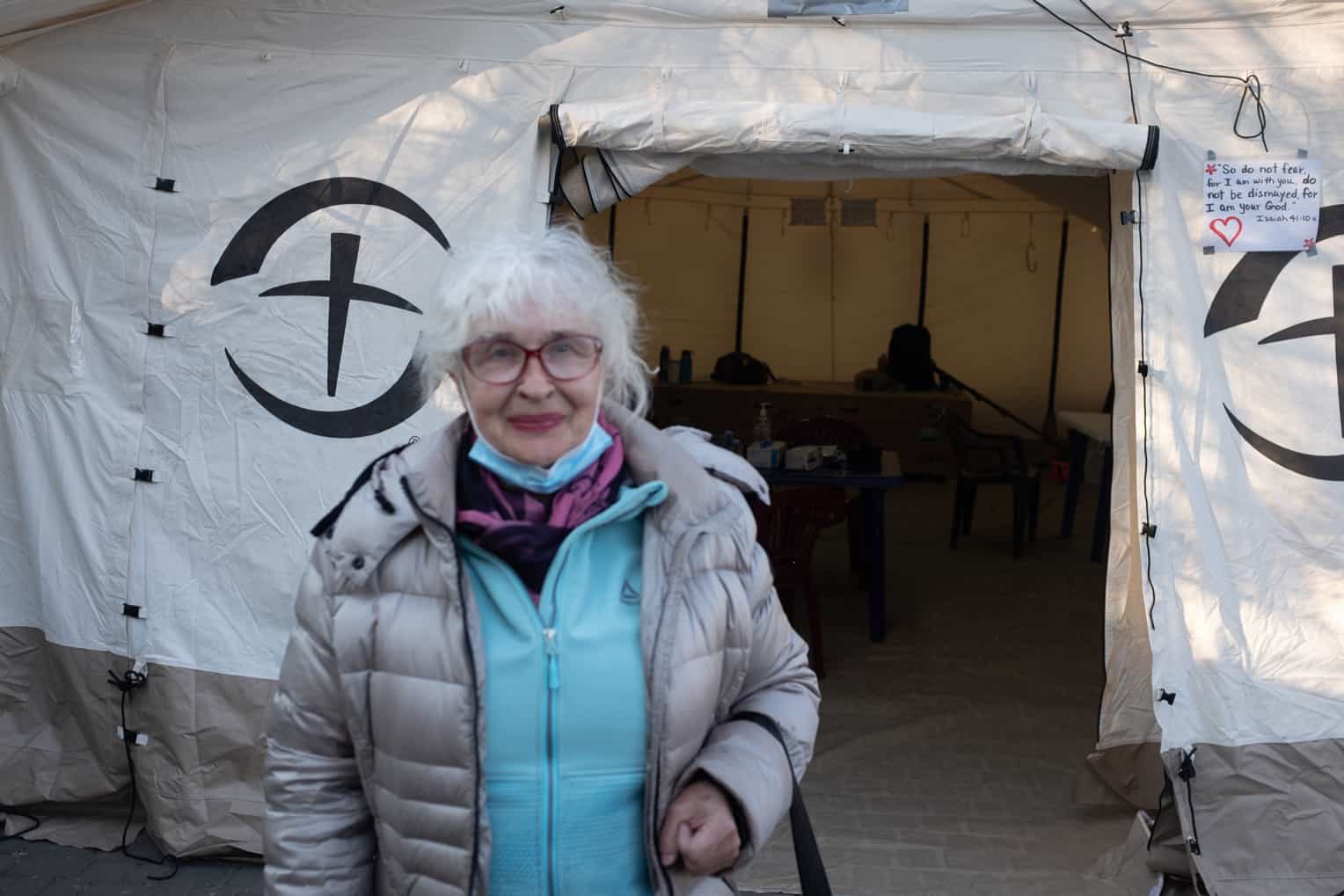
“I am happy that people are so caring here. I thought my injury was serious, but now I can be calm about it.”
As she rushed into a bomb shelter in the midst of an air raid, Valentina fell and injured her leg. In that moment she realized her only hope of survival was to try to escape. At 73 years old, she fled from Kharkiv while her husband of 52 years stayed behind, ready to defend his beloved country.
“My heart is eager to go back, but I have to flee from Ukraine,” she said as she described the bombs falling in her own neighborhood.
She came to the Samaritan’s Purse clinic, concerned about her leg injury. After a thorough examination, the team assured her that with ice, elevation, and rest her leg would properly heal. This simple treatment will be difficult for Valentina to accomplish in the coming days, but their compassionate care calmed her fears.
“I am happy that people are so caring here. I thought my injury was serious, but now I can be calm about it,” she said.


